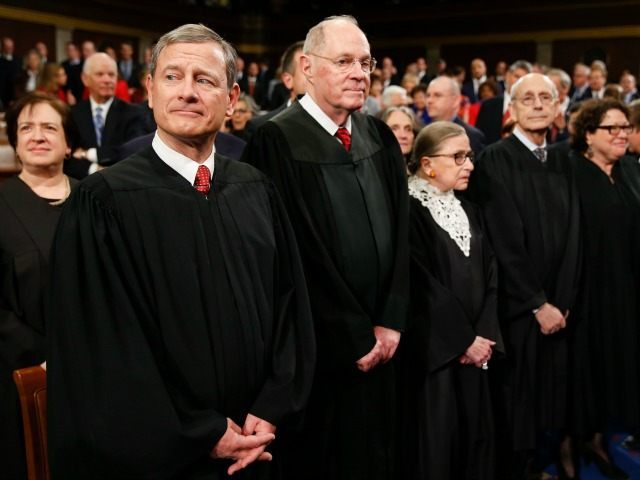A majority of Americans said the Senate should hold confirmation hearings in the event of a Supreme Court vacancy this year, according to a Marquette University poll released Saturday, which had been conducted prior to the news of Justice Ruth Bader Ginsburg’s death.
The Marquette University poll, conducted September 8-15, among 1,523 adults nationwide, found that “a substantial majority” of respondents, or 67 percent, believe the Senate should proceed with confirmation hearings this year if a vacancy occurred. Most notably, the survey found that the majority view does not tend to vary by party affiliation.
Seventy-one percent of independents said the Senate should hold hearings in that scenario, followed by 68 percent of Republicans and 63 percent of Democrats.
Thirty-seven percent of Democrats said the Senate should not hold hearings in such a scenario, followed by 31 percent of Republicans and 28 percent of Democrats.
The survey also found that respondents were far more divided on the GOP Senate’s handling of former President Obama’s nomination of Merrick Garland to replace Antonin Scalia in 2016:
By contrast, partisans are much more divided on whether the decision not to hold hearings in 2016 on the nomination of Merrick B. Garland was the right or wrong thing to do. Among all adults, 25 percent say that not holding hearings was the right thing to do, while 73 percent say that it was the wrong thing to do. Among Republicans, 45 percent say that not holding hearings was the right thing to do, but only 15 percent of Democrats agree. The full responses by party are shown in Table 4.
Senate Majority Leader Mitch McConnell (R-KY) said in a statement on Friday that the president’s nominee “will receive a vote on the floor of the United States Senate”:
In the last midterm election before Justice Scalia’s death in 2016, Americans elected a Republican Senate majority because we pledged to check and balance the last days of a lame-duck president’s second term. We kept our promise. Since the 1880s, no Senate has confirmed an opposite-party president’s Supreme Court nominee in a presidential election year.
By contrast, Americans reelected our majority in 2016 and expanded it in 2018 because we pledged to work with President Trump and support his agenda, particularly his outstanding appointments to the federal judiciary. Once again, we will keep our promise.
Sen. Lindsey Graham (R-SC), chairman of the Senate Judiciary Committee, urged curious minds to refer to his most recent statements to better know his position on potentially filling a Supreme Court vacancy this year:
“Well, Merrick Garland was a different situation. You had the president of one party nominating, and you had the Senate in the hands of the other party. A situation where you’ve got them both would be different,” he said in a forthcoming appearance on Full Court Press with Greta Van Susteren, which will air on Sunday.
“I don’t want to speculate, but I think appointing judges is a high priority for me in 2020,” he added.
In a message to the GOP on Saturday, President Trump suggested leaders have an obligation to fill the seat “without delay”:
The survey’s margin of error is +/- 3.6 percent.

COMMENTS
Please let us know if you're having issues with commenting.